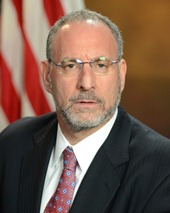In 1992, Andy Lugar was a 29-year-old Brooklyn-based attorney when a DEA narcotics team asked for, and got permission, to hit a house they’d been targeting for suspected drug trafficking.
Shortly after the bust, however, Lugar got a call from tough New York officers who could barely talk. They were traumatized by what they found when they kicked down the door and found, not a drug stash, but 13 young girls who had been smuggled in from Columbia and had been forced into prostitution every day for months.
After translators were brought in, the girls told their stories. “I’d never heard of such a heinous act in my life,” Lugar said recently. “The stories were horrific. Every one of us was in tears.”
There were no human trafficking statutes on the books at the time. No one knew what to charge the men with — until someone realized, from the civil rights era, there was code that made it a “crime to enslave.” The men were charged with slavery.
Female officers were found and each was asked to take one of the girls home, get her clothing and medical attention. Eventually the girls were given a choice of what to do next. Some wanted to go home and forget everything. Others wanted to stay and testify. And a few wanted to simply disappear into the country and have no one ever learn what happened to them. (Eventually immigration officials showed up and wanted to deport the girls as illegal — but were turned away.)
In his years prosecuting gangs and drug lords, Lugar said, “No case stayed with me the way this one did.”
Newly appointed U.S. attorney general in Minnesota, Lugar is prioritizing the sex trafficking issue. Unlike his introduction to the practice of buying and selling people for sex in 1992, he was pleased to report to more than 200 people gathered at the Minnesota Sunset conference that there are now many lawyers and statutes across the country starting to take aim at this issue. And that Minnesota is certainly leading the march.
“Unlike dealing with other crimes, we need a larger community base — people who can help us serve survivors with dignity, and who can help us get more traffickers behind bars.”
